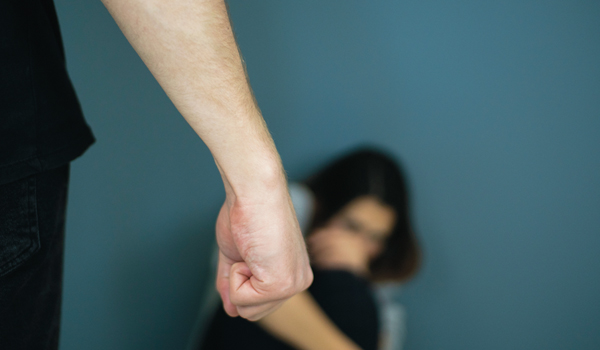‘Systemic failures continue’ in police perpetrated domestic abuse, report finds
New research from the Centre for Women’s Justice (CWJ) reveals “shocking levels” of domestic abuse by police officers is still rife and forces are struggling to tackle the abuse of power or recognise that abuse off duty must be addressed.
Published on Wednesday (September 18), its report found there are still “entrenched cultures within policing that are resistant to change”, with “ample evidence that far too many police officers are escaping sanction” despite multiple allegations of abuse.
The report also found some instances of officers “rising through the ranks” and even being promoted to roles with responsibility for policing rape and domestic abuse despite facing allegations themselves.
The report tracks changes to the way police perpetrated domestic abuse (PPDA) is addressed by the forces nearly five years on since the publication of its super-complaint in March 2020 about police failure to tackle domestic abuse.
The charity said since submitting its super-complaint it has been contacted by more than 200 victims of abuse by police officers, who provide accounts indicating “systemic failures continue”.
The report – Police perpetrated domestic abuse: Has anything really changed since the 2020 super-complaint? – is based on the accounts of some of these women and a detailed tracking exercise of the “deluge of reports, investigations, inspections and inquiries” that have been undertaken since the “extent and scandal of police violence towards women was exposed”.
Many women report that the officer they accused attempted to criminalise them and others that they manipulate family law proceedings for revenge.
Forty-five per cent of the women who came forward were themselves police officers or staff and frequently suffer victimisation if they dare to report a fellow officer.
Researchers said one police officer, ‘Sally’, who reported frequent abusive messages from her ex-partner – an officer with the same force – was incorrectly told “that’s not harassment, we don’t need to record this as a crime”.
Another, ‘Rose’ told the CWJ that her experience of reporting PPDA to her force “was one of the worst feelings I have ever had – complete desperation and feeling like I had nowhere to turn for help”. Her experience was so bad that she said she would not report again even if she was physically assaulted.
‘Mary’ had enjoyed an exemplary career with her force prior to reporting domestic abuse by her husband, an officer on the same force. She was initially placed on “compassionate leave”, while her partner continued to work. He now holds a senior role with responsibility for the force’s response to violence against women and girls (VAWG). She has had to transfer out of the force.
Researchers said ‘Farah’ reported physical assault by her police officer partner and her account was supported by photographs of her injuries. The case was investigated by officers from the same station where her partner worked and he continued to work on full unrestricted duties throughout the investigation.
In another instance, ‘Lorraine’s’ abuser was promoted to the rank of chief inspector, despite having two entirely separate rape allegations against him from two people who had no prior knowledge of one another.
Harriet Wistrich, director of the CWJ, said: “There are entrenched cultures within policing that are resistant to change and without energetic intervention they will continue to harbour misogyny and cover up wrongdoing.
“The police and those investigating and recommending change must listen to the voices of victim/survivors in order to understand the extent of harm and failure, if they ever hope to restore trust.
“Our report proposes a series of recommendations for reform but it may be that something more radical needs to happen to the institution of policing to tackle the scale of problems we have seen from the ground.”
Commenting on the new report, the Victims’ Commissioner Baroness Newlove said: “Domestic abusers have no place in our police forces. This CWJ report serves as a stark reminder that victims and survivors of PPDA are still being let down and I welcome their recommendations.
“Two years on from the conclusion of CWJ’s super-complaint, victims continue to face significant barriers when reporting. The report highlights several troubling examples of survivors being ignored or dismissed – some even facing baseless counter-allegations after coming forward. CWJ found poor victim confidence is leading to under-reporting, which risks the problem becoming more entrenched. Victims have spoken and it’s important we listen.
“Failures to share intelligence, spot patterns of behaviour, and connect the dots mean valuable opportunities to identify and root out abusers are not being grasped. We have missed these signs before with devastating consequences. This cannot continue and it is vital victims have routes to escalate reports as well as access to appropriate support. We need to dismantle the culture that shields abusers and fails to hold them to account.
“Updating guidance on vetting and misconduct is a necessary first step. But guidance alone is meaningless unless it is enforced. While the National Police Chiefs’ Council, College of Policing and others have set out clear plans, these bodies ultimately lack teeth. Without proper accountability, the success of these initiatives ultimately hinges on the commitment of individual chief constables.”
Association of Police and Crime Commissioners joint leads for victims, Sophie Linden and Lisa Townsend, said: “The CWJ follow-on report from their 2020 super complaint provides evidence of continued failings across forces to tackle seriously police-perpetrated abuse.
“We commend the bravery of those women who shared their experiences throughout the report, and CWJ for continuing to put police-perpetrated domestic abuse at the top of the agenda.
“We are disappointed at the lack of progress but note the commitment from the Government to tackling VAWG, and from our partners across national policing to drive up standards.
“Police and crime commissioners will continue to hold chief police officers to account for improving standards to ensure that no level of abuse is tolerated, and that victims get the justice and support they have the right to expect.”


